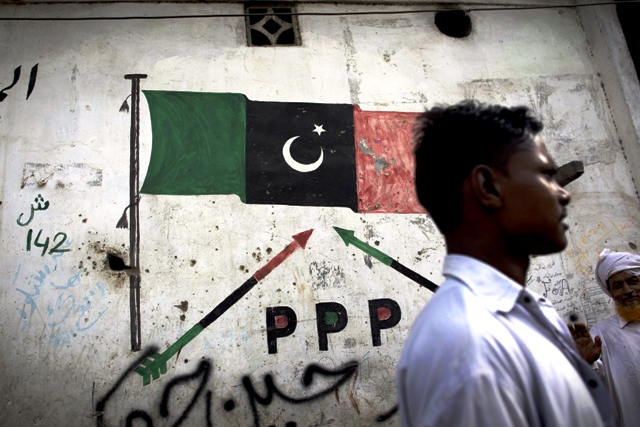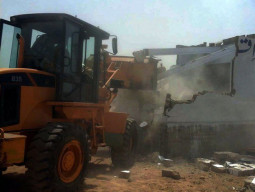
On April 17, the SHC had issued notices to all political parties and the Election Commission of Pakistan to file their comments regarding removal of graffiti to restore the city’s outdoor beauty.
On Tuesday, the court was told that only Jamaat-e-Islami and Pakistan People’s Party had engaged their lawyer and requested for time to file their comments. It was further informed that notices to the Muttahida Qaumi Movement, Mohajir Qaumi Movement-Haqiqi, Pakistan Tehreek-e-Insaf, Pakistan People’s Party-Shaheed Bhutto, Pakistan Muslim League-Quaid and Sunni Tehrik could not be issued by the court’s office.
Headed by Justice Irfan Saadat Khan, the bench once again directed all the political parties to file their comments by April 30.
Petition for cleaner Karachi
A civil rights campaigner, Rana Faizul Hasan, had moved the court against alleged failure of the civic administration and law enforcers to remove unauthorised barriers and graffiti from parts of the city.
Hasan, who is general-secretary of the United Human Rights Commission of Pakistan, had named the Sindh chief secretary, secretary of the local government, additional chief secretary for home, provincial chiefs of police, Rangers and administrator of Karachi, as respondents in the petition.

He stated that the unauthorised barriers placed on streets had restricted the free movement of citizens as well as law enforcers and emergency workers. “Around 70 per cent of roads in the city have been blocked by placing such restrictions by residents in Jamshed, Gulshan-e-Iqbal, North Nazimabad, Korangi and other towns. A state within the state has been established in this way,” he argued. “On the pretext of security, walls have been raised on the streets leading to the Bilawal House due to which the citizens of the area had to suffer.”
He also drew the judges’ attention towards another issue of how graffiti on the walls were destroying the beauty of the city. “The political and religious parties as well as other organisations are involved in this activity,” he alleged.
In October 2011, Hasan recalled, the Sindh governor had banned wall-chalking, ordering the local administration officials to take action against those found damaging the city’s beauty.
Rana had asked the court to direct the authorities to remove unauthorised barriers from streets and stop wall-chalking in the city.
Since December last year, the court had been calling comments from the provincial government regarding the areas with barricades and graffiti. “Political parties are actively involved in such activities and it is noted that the forced barriers, graffiti and political slogans are installed, affixed, painted not only on the public buildings but also on private buildings, public streets and walls of residences,” the judges had observed on April 17.
Notices were issued to the Sindh law secretary and Karachi Metropolitan Corporation’s law officer to inform the court whether the election commission’s directives for removal of wall-chalking and graffiti were followed.
Published in The Express Tribune, April 24th, 2013.

















COMMENTS
Comments are moderated and generally will be posted if they are on-topic and not abusive.
For more information, please see our Comments FAQ